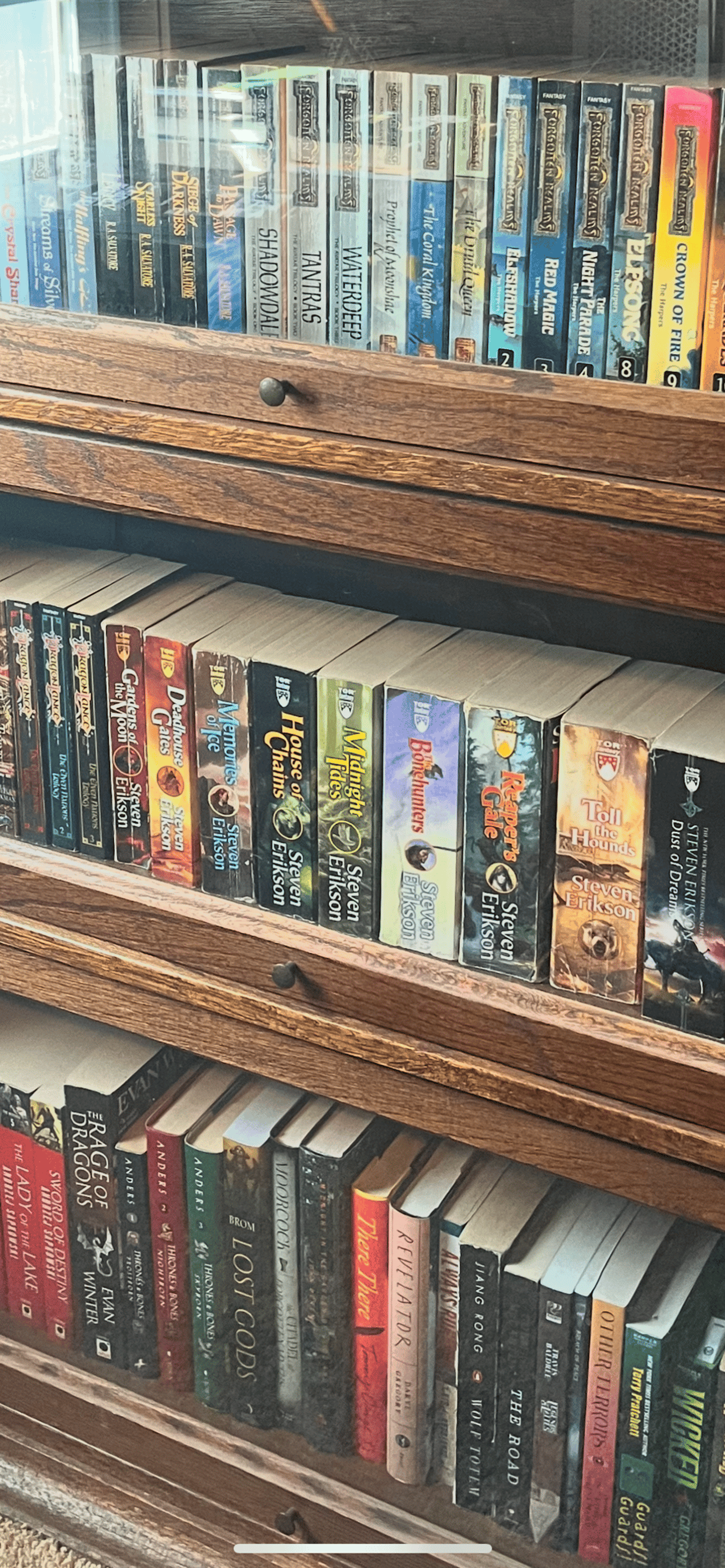Subscribe to The Literary Fantasy Magazine 2026 for new fantasy stories every season.

The Purpose of Fantasy: An Interview with Dr. A.P. Canavan
I had the opportunity to speak with Dr. A.P. Canavan about the value of Fantasy literature and the wonders of narrative as an art form.
INTERVIEW
James D. Mills
2/28/20253 min read
Greetings Travelers,
If you had the opportunity to speak with one of your literary heroes, what would you ask them? I wouldn’t fault you for feeling nervous. Back in November, I was fortunate to have such an experience—and yes, I was shaking in my boots.
I had a conversation with the Doctor of Fantasy, A.P. Canavan, a university professor, freelance editor, and host of the fantastic YouTube channel, “A Critical Dragon” where he talks about narrative and does close readings focusing on “different aspects of narrative from a reader’s point of view.”
I first met Dr. Canavan a couple years ago in Orlando, Florida, at the International Conference for the Fantastic in the Arts (ICFA). He was a bit busy when I approached him, and so he redirected me to Steven Erikson (author of Malazan Book of the Fallen; check out our review here), lounging poolside a few feet away. Yeah, I got distracted.
Luckily, I was able to sit down with him in November 2024. Dr. Canavan is a brilliant mind in the Science Fiction and Fantasy community, and I learned so much from speaking with him. If you’re interested in listening to the full talk, you can find that on my YouTube channel.
A.P. Canavan’s Background
Dr. Canavan initially trained as a lawyer, obtaining an undergraduate degree in jurisprudence. He had moral and ethical reservations about working in law, “I rapidly found out that unlike Perry Mason, not all the clients were going to be innocent, and that was a bit difficult for me to deal with.”
Disillusioned with his original pursuits, he returned to school to train in English Literature, going on to attain a Master’s in Science Fiction and a Ph.D. in Fantasy Literature. Dr. Canavan’s passion lies in narrative, as it “give(s) us insight into different ways to look at life.” He told me about how stories shape our lives and perceptions of reality itself. Narrative is at the heart of our understanding of the world around us.
The Purpose of Fantasy
When I asked Dr. Canavan what he thought the purpose of Fantasy literature was, he grinned, saying, “The purpose of Fantasy literature is exactly the same as the purpose of any literature; to create art in the form of narrative.” He laments the elitist attitudes many literary scholars and critics have towards Sci-Fi and Fantasy, arguing that most of the common reservations people have about genre fiction can be applied equally to Literary Fiction.
“We could say things like: ‘do we really need one more story about an up-and-coming author who’s struggling to make ends meet in a garret in New York, and the people they meet in their everyday lives, have we not already read that?’ … We could make the same snide and facetious and flippant remarks about Literary Fiction … but that would be a massive disservice to the beautiful writing Literary Fiction can encompass. Just as in Fantasy, there is incredible writing…”
Dr. Canavan argues all Fantasy stories are different expressions of literary narratives. Some stories lean more towards artistic expression, while others lean more into entertainment value. Regardless of where a story falls on that spectrum, “it deserves to be explored.”
Classic fantastical or speculative literature is often spared the criticism modern works face. Works such as Paradise Lost, A Midsummer Night’s Dream, or 1984, have lasted the test of time and so their fantastic or speculative elements are ignored, or overlooked. Dr. Canavan suggests that works from our own time might one day be revered as classics, but predicting which authors or which books will endure the same way Shakespeare's works have is impossible.
Writing offers inherent value to the reader, despite genre or form. “There is wonderful art all around us. Art in itself, writing in itself, teaches us about ourselves, teaches us about our world. It allows us to inhabit different perspectives. It can console us; it can be cathartic. We can rage against it! It serves so many different purposes.”
Conclusion
Narrative is an art form with intrinsic value, whether it was created to simply entertain its readers or to provide insight into the human condition. Dr. A.P. Canavan brings an open mind to the literary field, as he’s a person who truly loves the craft of narrative.
As the editor of The Literary Fantasy Magazine, I had prescribed beliefs about the legitimacy of different forms of Fantasy. As I spoke with Dr. Canavan, probing for answers that might affirm my beliefs, I realized I had, in some ways, developed a misguided outlook on the literary merit of our genre. I still love Fantasy that seeks to dive beneath the surface, but after listening to Dr. Canavan’s perspective, I’m happy to report I now have a broader understanding of what makes the Fantasy genre, as a whole, so fantastic.
I highly recommend checking out the video companion to this article, as it goes further into the topics discussed in this article, but also into the elements of surprise in reading and the ethics of being an editor.

Art by Kim Holm
Logo by Anastasia Bereznikova
Contact: editors@thearcanist.net | business@thearcanist.net
Copyright © 2025 The Arcanist: Fantasy Publishing, LLC
ISSN: 3069-5163 (Print) 3069-518X (Online)
